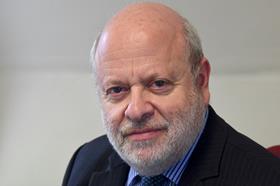It’s not my fault I’m repeating myself. Nearly three years have gone by, and here we go again: arguments about leaving the European Convention on Human Rights (ECHR) have become the focus of political attention.

The last time the discussion was about the Bill of Rights Bill, introduced by Dominic Raab in his spell at the justice ministry. Look what happened to him! Yes, I know: his fate provides no lesson to others who want to interfere with the ECHR.
This time around, we have two major parties, the Conservatives and Reform UK, which want to leave the ECHR.
There are many arguments for staying, contested by some. The Convention underpins the Good Friday Agreement and our security relationship with the EU (oh no, it doesn’t). It can be tweaked (oh no it can’t, its drafting is too vague). It will cast us into the outer European darkness with Belarus and Russia (we don’t care).
But there are strong reasons for lawyers, in their capacity as lawyers, to want the UK to continue with ECHR adherence. I will start with a new reason, which didn’t exist the last time I put on my boxing gloves.
The ECHR is a product of the Council of Europe. To be a member of the Council of Europe (CoE), a country has to subscribe to the ECHR. If a country leaves the ECHR, it also leaves the CoE. Who cares? Well, lawyers should care, because the CoE this year published another convention, this time on the protection of lawyers, the first international treaty for our protection. If we leave the ECHR, we leave the lawyer convention, too.
The new convention puts into black-and-white numerous clauses to counter attacks on the practice of our profession, whether in the form of harassment, threats or assaults, or interference with the exercise of professional duties. There are detailed provisions on our professional rights.
Now it is true that the CoE is opening ratification of the new convention to non-CoE countries, and some are interested. In theory, the UK – which has already signed the lawyers’ convention – could go ahead and ratify it even though no longer a CoE member. But that is not realistic. A government which pulls us out of the ECHR and the CoE is very unlikely to ratify the CoE convention protecting lawyers. To do so would undermine one of the ECHR’s opponents’ principal arguments: that the common law has been good enough for our protection for centuries.
To respond to this, every country needs to answer in legal terms the old adage of ‘Quis custodiet ipsos custodes?’ For the time being, the ECHR is our protection against the government.
That is because the common law has not been good enough for our protection as lawyers in terms of the severest attacks on us. Why not?
There have been two UK solicitors assassinated within living memory, both with allegations of state collusion in their murders.
Rosemary Nelson was murdered by a car bomb at her home in Lurgan, Northern Ireland in 1999. The inquiry into her death found no evidence of state collusion, but could not exclude the possibility that individual officials had helped the perpetrators. It found that state agencies had failed to protect her, and that public abuse and assault by RUC officers helped legitimise her as a target in the eyes of loyalist terrorists.
More significantly for the pro-ECHR argument, Pat Finucane, a Belfast solicitor, was shot 14 times while having supper with his wife and three children in 1989. The former prime minister, David Cameron, apologised to the family in 2011 – twenty-two years later - for the shocking levels of collusion between the state and the murderers.
Article 2 of the ECHR deals with inadequate investigation into the circumstances of death. Yet despite the promise of a public enquiry in his case, and despite the Supreme Court in 2019 (echoing the European Court of Human Rights in 2003) deciding that there had never been an enquiry into his death which satisfied Article 2, there has still not been a proper enquiry.
Now – nearly forty years later, and after repeated refusals – such an enquiry is on the way, since the present government finally announced one a year agoa.
We need an institution to protect us from the government, against harassment of ‘lefty lawyers’ or much, much worse as in the case of Pat Finucane.
Article 4 of the new convention provides such protection:
‘Parties .. shall ensure that lawyers … are able to carry out their professional activities … without being the target of … any form of physical attack, threat, harassment or intimidation; or any improper hindrance or interference’.
So I say to the ECHR, I would like to think on our collective behalf (via ‘Mamma Mia’): ‘My, my, how can I resist you?’
Jonathan Goldsmith is Law Society Council member for EU & International, chair of the Law Society’s Policy & Regulatory Affairs Committee and a member of its board. All views expressed are personal and are not made in his capacity as a Law Society Council member, nor on behalf of the Law Society
This article is now closed for comment.































4 Readers' comments